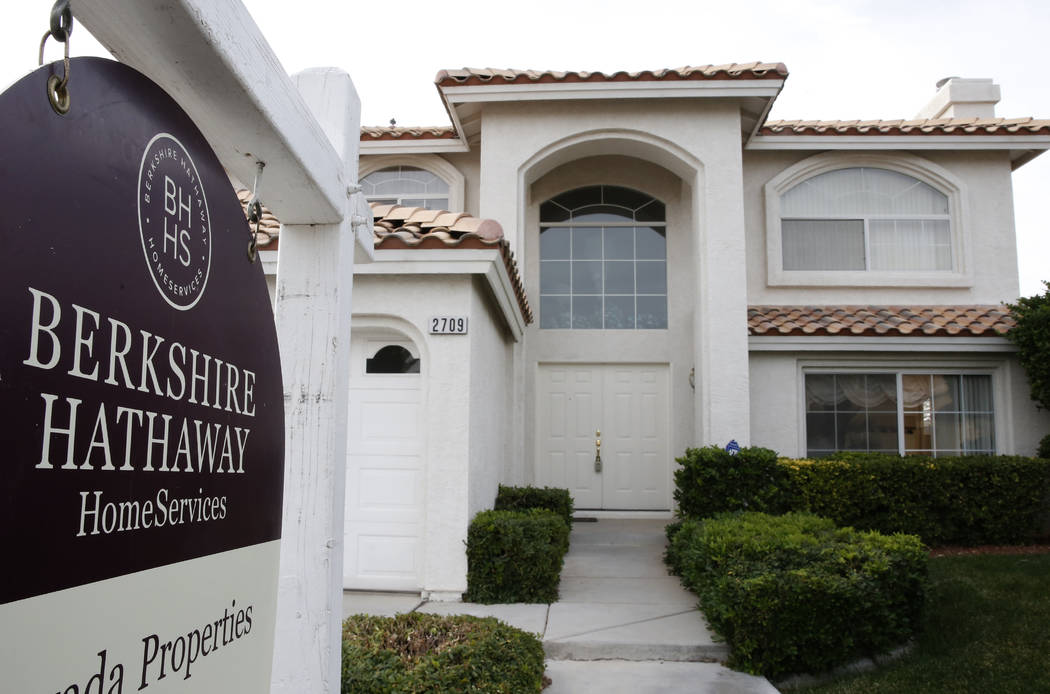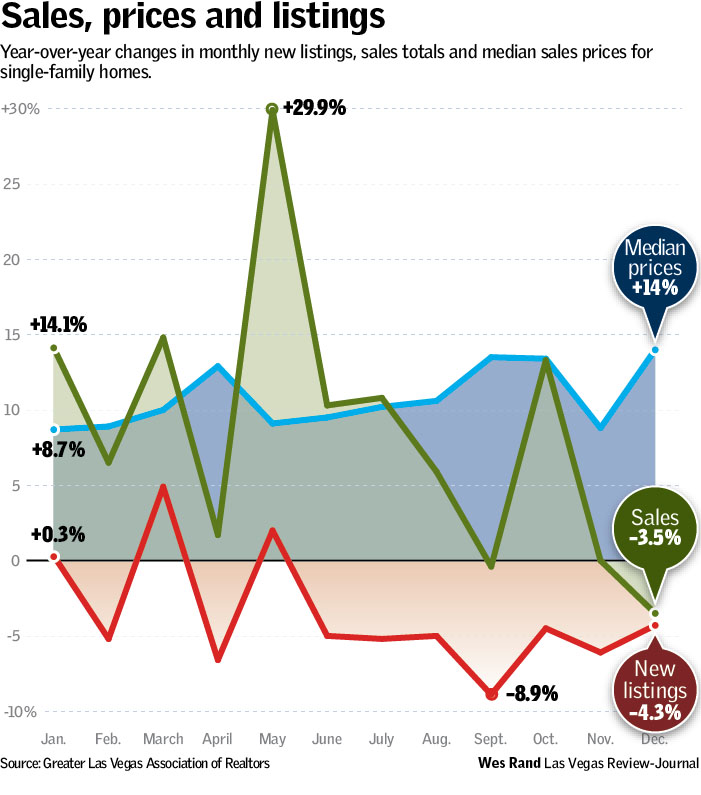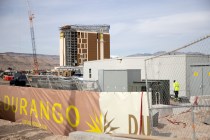Las Vegas home sellers are wary and inventory slips

Las Vegas home prices are climbing at one of the fastest clips in the country, and sales totals last year reached one of the highest levels ever, despite plunging availability.
But if your house hunt is taking longer than expected, you’re not alone, as sellers are increasingly gun-shy.
The monthly tally of new listings for single-family homes — the bulk of the market — posted year-over-year declines nine times in 2017, according to Greater Las Vegas Association of Realtors data. Overall, 3,800 single-family homes were on the market without offers by year’s end, down 36 percent from the end of 2016.
Amid the pullback, monthly sales totals rose nine times year-over-year, and the median sales price climbed every month over the same periods in 2016.

The tumbling inventory is good for sellers, who can fetch higher prices amid strong demand and shrunken
competition. But for buyers, it means more expensive homes and fewer choices, and for listing agents, it’s crimping sales opportunities.
A number of factors are reducing or restricting availability in Las Vegas. Amid the improved economy and increased appetite for houses, a still-large tally of underwater borrowers can’t sell easily, and a sizable number of rental homes — purchased by bargain-hunting investors after the market crashed — aren’t listed for sale yet.
Housing tracker Brian Gordon, co-owner of Las Vegas’ Applied Analysis, agreed that some owners probably aren’t listing because they can’t afford what’s on the market.
He figures people who survived the housing roller coaster of the past dozen or so years “have learned some lessons.” They’re staying put, he said, not buying a new house and taking on a larger, potentially unaffordable mortgage.
“Homeowners’ ability to sell … and move into something that’s more attractive, potentially with a higher price, is just something that many aren’t willing to do these days,” Gordon said.
The GLVAR’s 2018 president, Chris Bishop, a branch manager with Coldwell Banker Premier Realty, said a lot of people aren’t moving because, following years of low prices, they can’t find a better deal than they currently have.
Agents have to work harder to find sellers, he said, and prices have jumped so far that would-be house hunters “might not be able to buy what (they’re) looking for at a reasonable price.”
Still, Las Vegas home prices are nothing compared to, say, San Francisco’s or New York’s. In those and other cities, it’s all too common to live an hour or more from work because you can’t afford anything closer, or to move away entirely because of high housing costs.
In San Francisco, the median household income is $87,700, and the median sales price of previously owned single-family homes is $1.5 million. In Clark County, the median household income is around $52,600, and the median sales price of a single-family house is about $268,000, according to figures from the U.S. Census Bureau, the California Association of Realtors and the GLVAR.
Does this mean everyone should ditch San Francisco for Las Vegas? Of course not. San Francisco is far from perfect — it’s crowded and expensive and has abysmal traffic — but it has high-paying tech jobs, tons of culture and architecture that can make you cry when driving around Las Vegas, the global capital of bland strip malls and cookie-cutter stucco houses.
But as people talk about housing costs reaching crisis levels in the Bay Area, I haven’t heard of anyone, even amid our rising prices and shrinking inventory, who left Las Vegas because it’s too expensive here.
And neither has Bishop.
“We don’t have those problems,” he said.
Contact Eli Segall at esegall@reviewjournal.com or 702-383-0342. Follow @eli_segall on Twitter.













